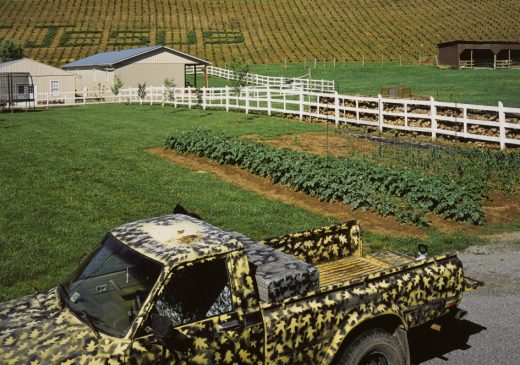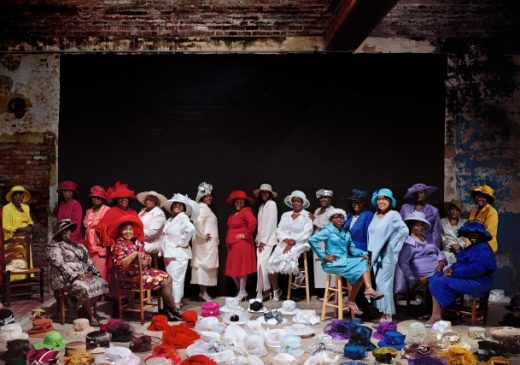Burk Uzzle nació en 1938 en Raleigh, Carolina del Norte, y comenzó su carrera a los 17 años como fotógrafo de plantilla para el News & Observer de Raleigh (1955-56). Luego pasó a trabajar como fotógrafo contratado por la agencia Black Star (1957-62) y, a los 23 años, fue el fotógrafo contratado más joven de la revista LIFE (1962-1968). Se hizo miembro de Magnum Photos en 1967 y llegó a ser presidente de Magnum Photos durante dos mandatos (1979 y 1980). Ahora es un fotógrafo independiente con sede en Wilson, Carolina del Norte, y pasa varios meses al año viajando y fotografiando por todo Estados Unidos. Uzzle es conocido por su cobertura fotográfica del movimiento por los derechos civiles, así como por captar aspectos cotidianos de la vida y la cultura estadounidenses, incluidas sus icónicas imágenes de Woodstock, una de las cuales adorna la portada del álbum de Woodstock.
tags: Arte de Carolina del Norte, artista de Carolina del Norte, Carolina del Norte
Burk Uzzle (August 4, 1938 in Raleigh, North Carolina) is an American photojournalist, previously member of Magnum Photos and president from 1979 to 1980.
Burk Uzzle (burkuzzle.com) has spent his life as a professional photographer. Initially grounded in documentary photography when he was the youngest contract photographer hired by Life magazine at age 23, his work continues to reflect the human condition. For sixteen years during the 1970s and 1980s, he was an active contributor to the evolution of Magnum and served as its President in 1979 and 1980. While affiliated with the cooperative, he produced the iconic and symbolic image of Woodstock (showing Nick Ercoline and Bobbi Kelly hugging), helped people grasp an understanding of the assassination and funeral of Dr. Martin Luther King Jr., and powerfully projects comprehension of what it means to be an outsider - from Cambodian war refugees to disenfranchised populations without voice or agency to portraits of communities not identified on a roadmap. His life, philosophy, and continuing work was explored in the critically acclaimed 2020 documentary feature film F11 and Be There by director Jethro Waters.
His archive spans more than six decades and captures much of the history of analog and digital photography. His current bodies of work rest deep in issues of social justice. A dozen years ago, Uzzle returned to North Carolina and now lives and works in two century old industrial buildings located in downtown Wilson not far from where he was born.


